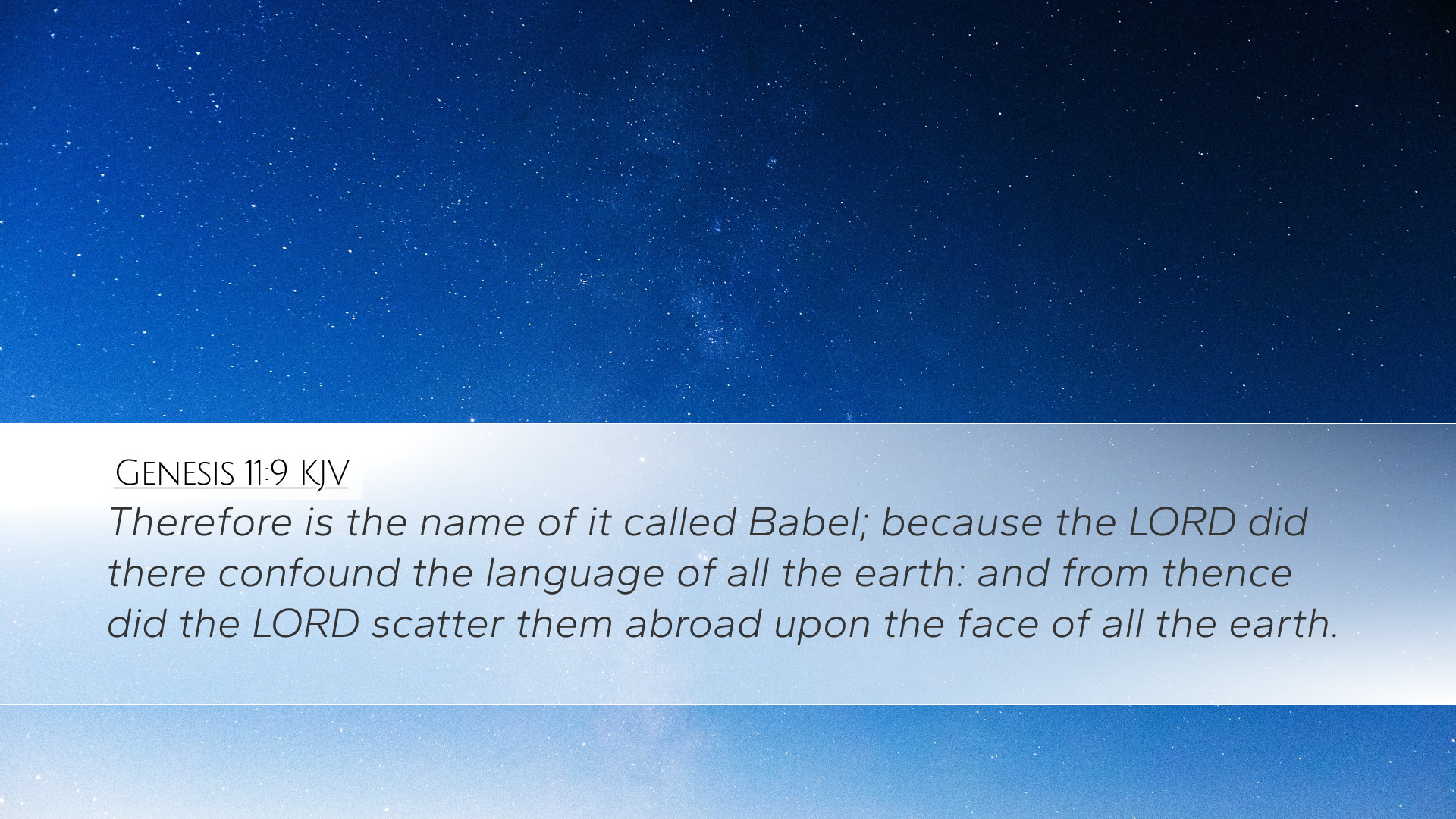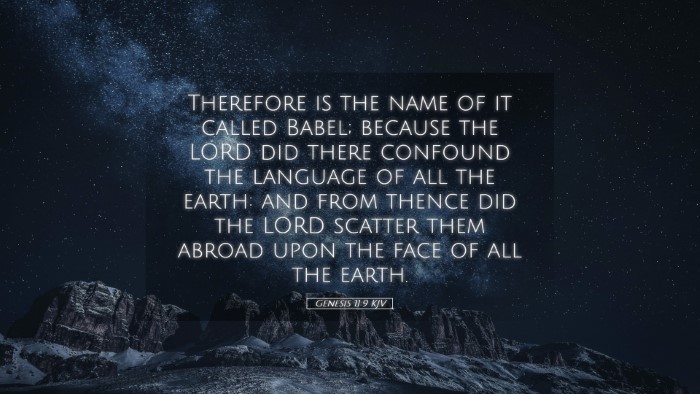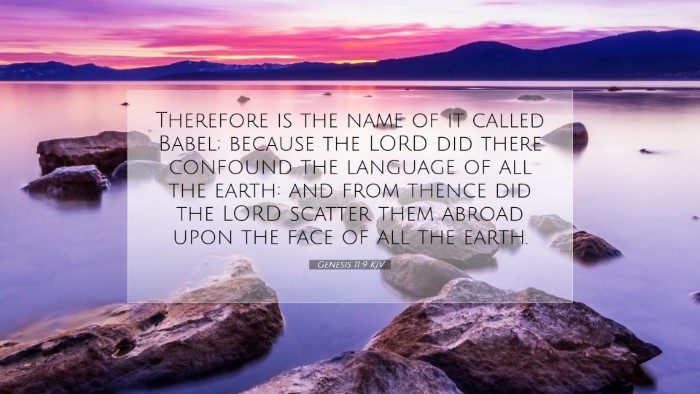Commentary on Genesis 11:9
Genesis 11:9 reads: "Therefore its name is called Babel, because there the Lord confused the language of all the earth; and from there the Lord scattered them over the face of all the earth." This verse serves as a pivotal moment in the Biblical narrative, illustrating the themes of divine sovereignty, human pride, and the origin of languages. In examining this text, we draw upon esteemed commentaries from Matthew Henry, Albert Barnes, and Adam Clarke.
The Context of the Tower of Babel
The events of Genesis 11 occur shortly after the Flood, during a time when humanity shared a single language and a desire for unity. The builders of the Tower of Babel sought to carve out a name for themselves, constructing a city and a tower that reached the heavens. This ambition symbolizes human pride and a desire for self-sufficiency, rejecting God’s command to fill the earth.
Analysis of the Name "Babel"
Matthew Henry emphasizes the significance of the name "Babel," which is derived from the Hebrew word "balal," meaning "to confuse." He notes that the confusion of language serves as a judgment from God against the prideful ambitions of humanity. Henry draws a parallel between Babel and the 'confusion' of spiritual matters when humanity attempts to elevate itself above divine authority.
Adam Clarke mirrors this sentiment, providing linguistic insights about the etymology of Babel, which he links to the idea of mixing and confusion. Clarke points out that the narrative serves not only as an origin story for various languages but also as a reminder of God’s ultimate authority over human endeavors.
God's Response to Human Ambition
The Lord’s intervention is crucial. Albert Barnes explains that God’s decision to confound the languages demonstrates His omniscience and omnipotence. The scattering of people reflects God thwarting human attempts to achieve absolute autonomy. Barnes reflects upon the theological implications, suggesting that the diversity of languages and cultures is part of God's plan to promote His glory globally.
Theological Implications
This passage reveals a fundamental truth about the nature of God and humanity. Matthew Henry succinctly summarizes this by stating that "pride goes before destruction." By attempting to build a name for themselves, the people of Babel inadvertently sow the seeds of their own disunity and dispersion—an act of divine irony.
Adam Clarke interprets the scattering not merely as punishment but also as a necessary step in God’s redemptive plan. This divine action does not inhibit God’s purpose; instead, it facilitates the spread of His creation across the earth. The multiplicity of languages thus becomes a vehicle for the eventual spread of the Gospel, as diverse peoples fulfill the Great Commission.
Applications for Contemporary Audiences
This text offers profound lessons for pastors, students, theologians, and scholars today. The pursuit of unity apart from God can lead to confusion and division. Albert Barnes encourages believers to seek unity rooted in Christ rather than in human ambitions. The lesson of Babel is timeless; it warns against the dangers of collective pride and the importance of humility before God.
Moreover, the passage encourages an understanding of cultural diversity as part of God’s intentional design. Matthew Henry reminds leaders and congregations to embrace differences as divine appointments, ensuring that movements within the Church reflect the inclusiveness of God's kingdom.
Conclusion
Genesis 11:9 encapsulates a critical moment in the Biblical narrative where human ambition meets divine sovereignty. The wisdom gathered from public domain commentaries highlights that while humanity may strive for greatness apart from God, true purpose is found in aligning with His will. The implications of this text extend beyond its historical context, offering timeless theological truths and practical applications for contemporary faith communities.
In summary, scholars and theologians should approach Genesis 11:9 not merely as an ancient historical account but as a profound lesson regarding the nature of God, the danger of human pride, and the beautiful complexity of creation in its diversity of languages and cultures.


